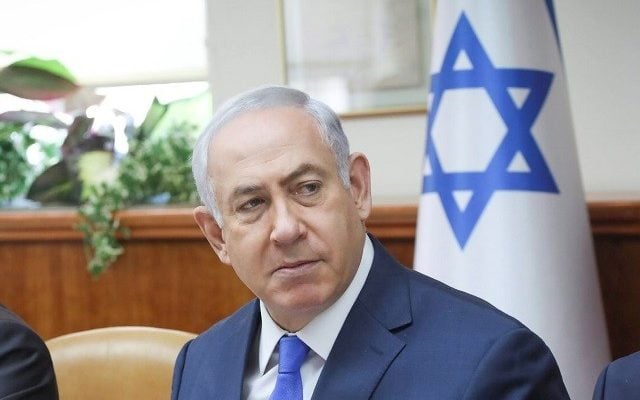Israel opposes the ceasefire deal reached between the US and Russia for southern Syria because it consolidates Iran’s military foothold on its borders.
Israel has voiced opposition to the deal reached between the US and Russia for a ceasefire in southern Syria because it enables the Iranian forces to gain a stronghold in areas close to Israel’s borders.
In France, Prime Minister Benjamin Netanyahu told reporters after his meeting with French President Emmanuel Macron on Sunday that Israel opposes the ceasefire agreement because it maintains an Iranian presence in the wartorn country.
Netanyahu noted that in his meeting with Macron, he made it clear that Israel was totally opposed to the ceasefire plan.
In a report on Monday, Ha’aretz quoted a senior Israeli official who said Jerusalem was wary of Iran’s intentions to expand its presence in Syria substantially. Iran is seeking to dispatch extensive military forces and to establish an airbase and a naval base.
“This already changes the picture in the region from what it has been up to now,” the senior official told Ha’aretz.
According to the report, Netanyahu discussed the ceasefire with US Secretary of State Rex Tillerson by phone Sunday night.
US President Donald Trump and Russian President Vladimir Putin had agreed on the ceasefire during their meeting at the G20 summit in Hamburg last week. The deal includes establishing de-escalation zones along Syria’s borders with Jordan and Israel.
Over the past month, Israel had held talks on this agreement with senior American officials, including Brett McGurk, the US envoy for the global coalition against the Islamic State (ISIS), and Michael Ratney, the special envoy for Syria.
Israel presented a list of demands and voiced several reservations about the agreement, saying that the de-escalation zones must keep Iran, Hezbollah and other Shi’ite militias away from Israel and Jordan and must not enable Iran to consolidate its presence in Syria.
Israel also told the US it objected to having Russian troops policing the ceasefire in the safe zones near its border.
Senior Israeli officials told Haaretz that when Jerusalem obtained the text of the deal, it discovered Israel’s positions had been ignored almost completely.
“The agreement as it is now is very bad” one senior Israeli official said. “It doesn’t take almost any of Israel’s security interests and it creates a disturbing reality in southern Syria. The agreement doesn’t include a single explicit word about Iran, Hezbollah or the Shi’ite militias in Syria.”
Kremlin spokesman Dmitry Peskov refrained from commenting on Israel’s opposition to the ceasefire deal.
By: World Israel News Staff





